
Brozy Syrup
Manufacturer
Zydus Cadila
Salt Composition
Ambroxol (15mg/5ml) + Guaifenesin (50mg/5ml) + Terbutaline (1.25mg/5ml)
Key Information
Short Description
Brozy Syrup effectively treats wet cough (cough with mucus) in children by thinning the mucus, relieving throat irritation, and clearing congestion.
Dosage Form
Syrup
Introduction
Brozy Syrup is a medication used to treat wet cough in children. It contains three active ingredients: Ambroxol, Guaifenesin, and Terbutaline. Each ingredient plays a crucial role in thinning and loosening mucus, decreasing its stickiness, and relaxing airway muscles. The medication is available in syrup form and should be taken orally with or without food. The dosage and duration of treatment depend on the child's clinical condition and severity of the illness.
Directions for Use
Take this medicine in the dose and duration as advised by your doctor. Check the label for directions before use. Measure it with a measuring cup and take it by mouth. Shake well before use. Brozy Syrup may be taken with or without food, but it is better to take it at a fixed time.
How it works
Brozy Syrup contains three active medicines. Each ingredient present in this medicine plays a pivotal role. Ambroxol is a mucolytic that thins and loosens mucus (phlegm), making it easier to cough out. Guaifenesin is an expectorant that decreases the stickiness of the mucus and helps in its removal from the airways. Terbutaline is a bronchodilator that relaxes and widens the muscles in the airways.
Quick Tips
Brozy Syrup may make your child feel sleepy. Advise your child to be cautious when taking part in physical activities. Do not share your child's medicines with other children, even if they show similar symptoms. Stop Brozy Syrup and immediately report to the doctor if your child develops an itchy rash, facial swelling, or breathing difficulties. Practice self-care tips: clean and disinfect surfaces after sneezing and coughing, give your child plenty of fluids, restrain your child from having caffeinated products and foods that are spicy and fried, make your child gargle with warm saltwater, and ensure your child takes enough rest.
Related Medicines
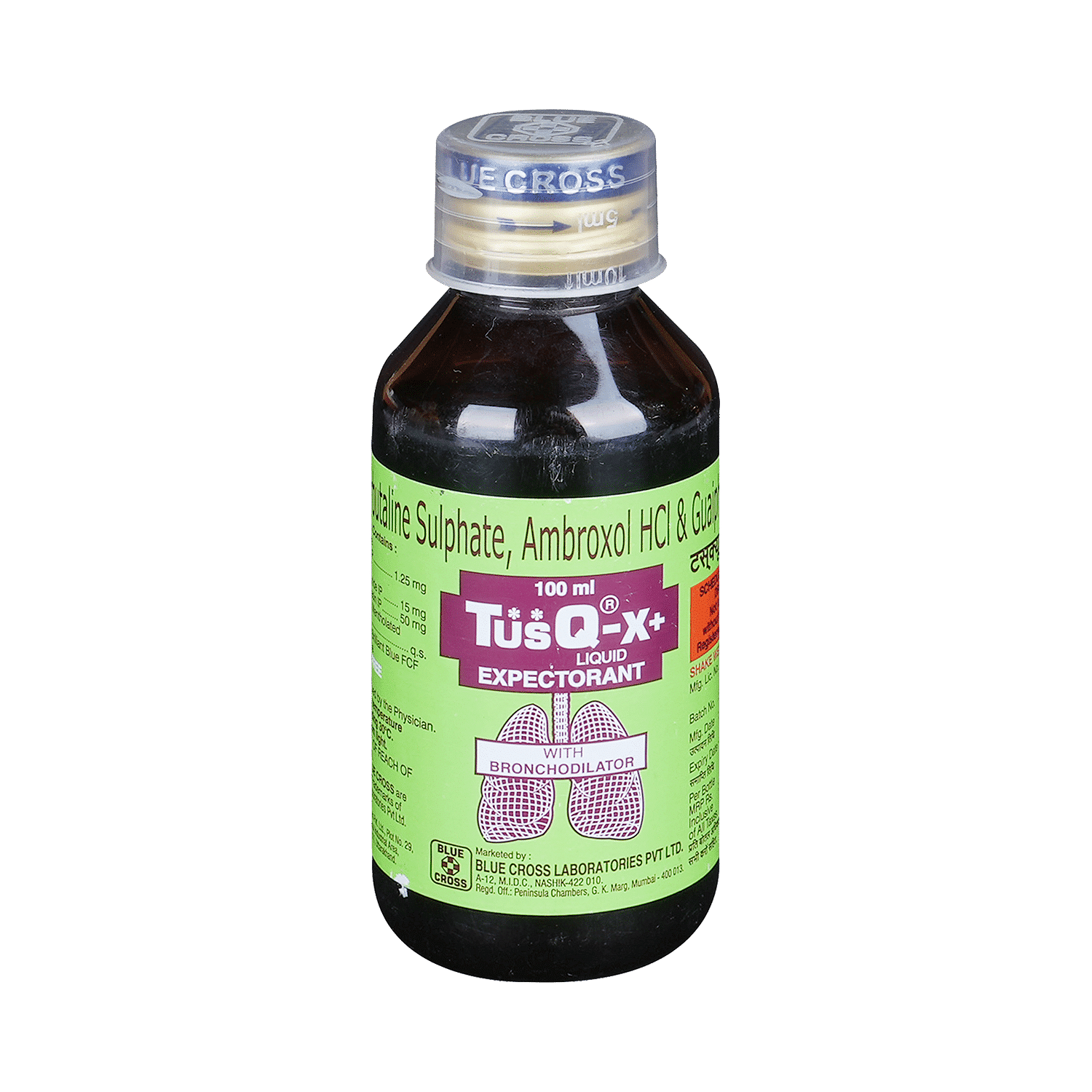
Tusq-X Plus SF Syrup
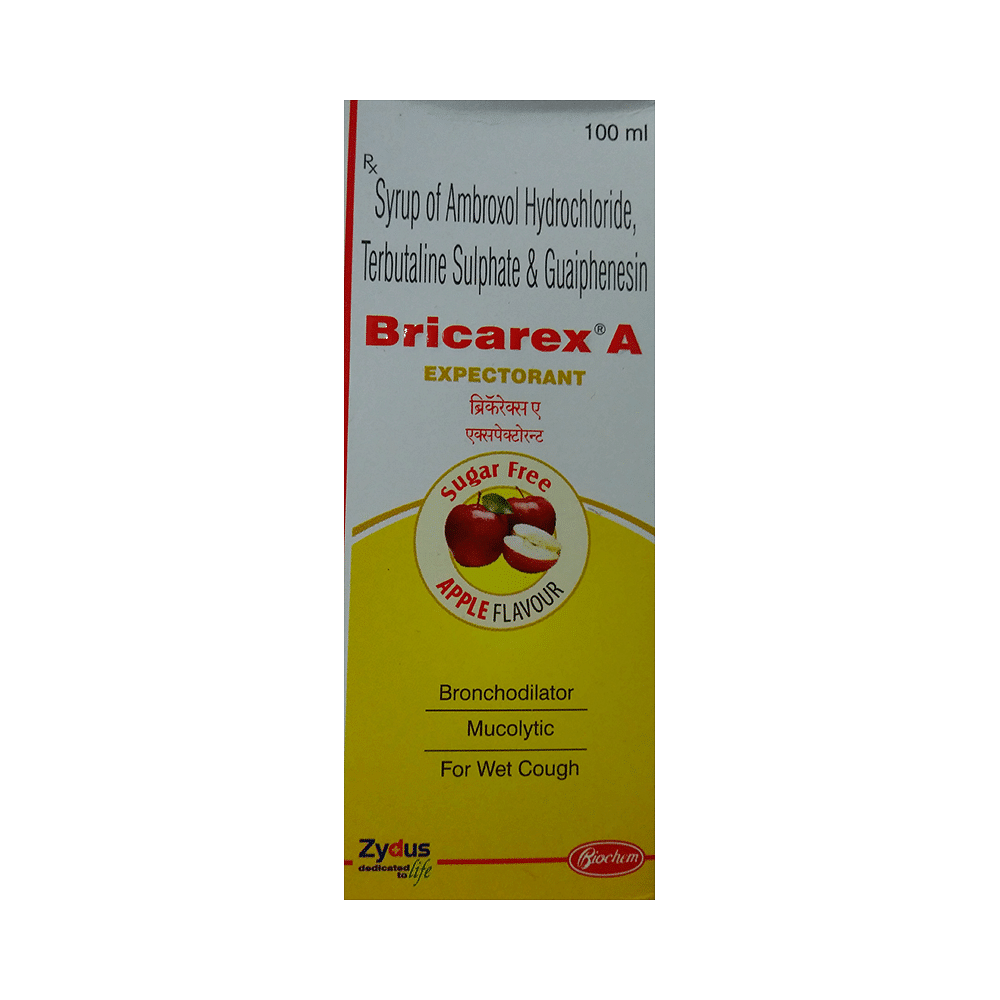
Bricarex A Expectorant SF Apple
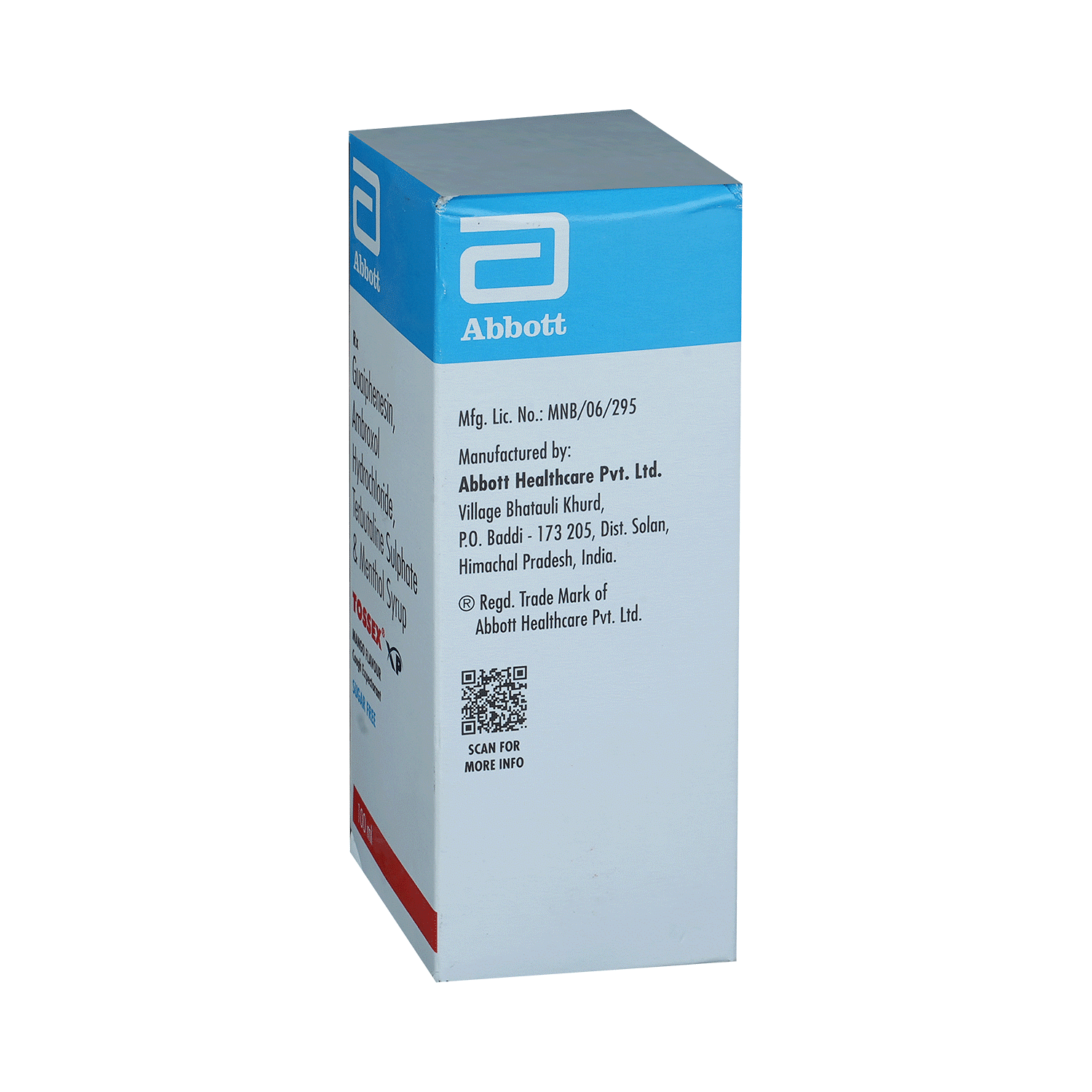
Tossex XP Syrup Mango

Amburox Syrup

Eledyl JR Syrup
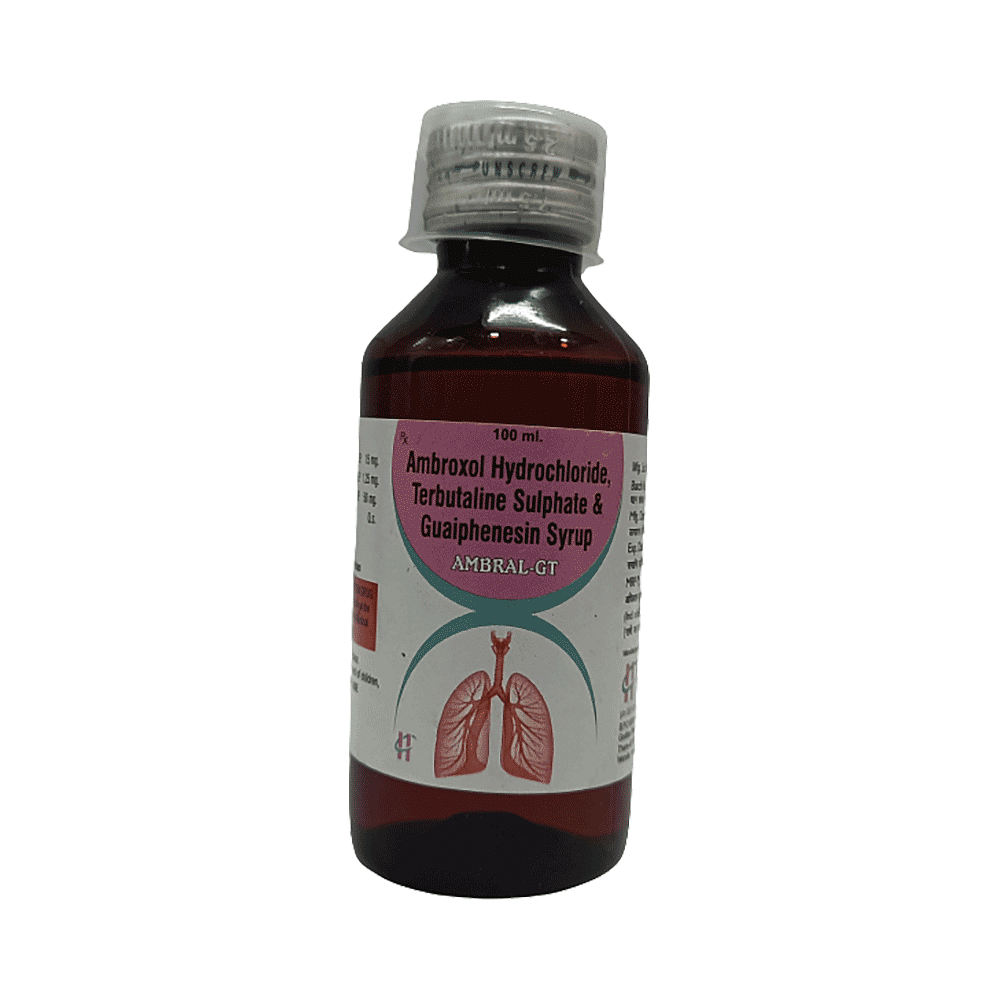
Ambral-GT Syrup

Inexol A Syrup
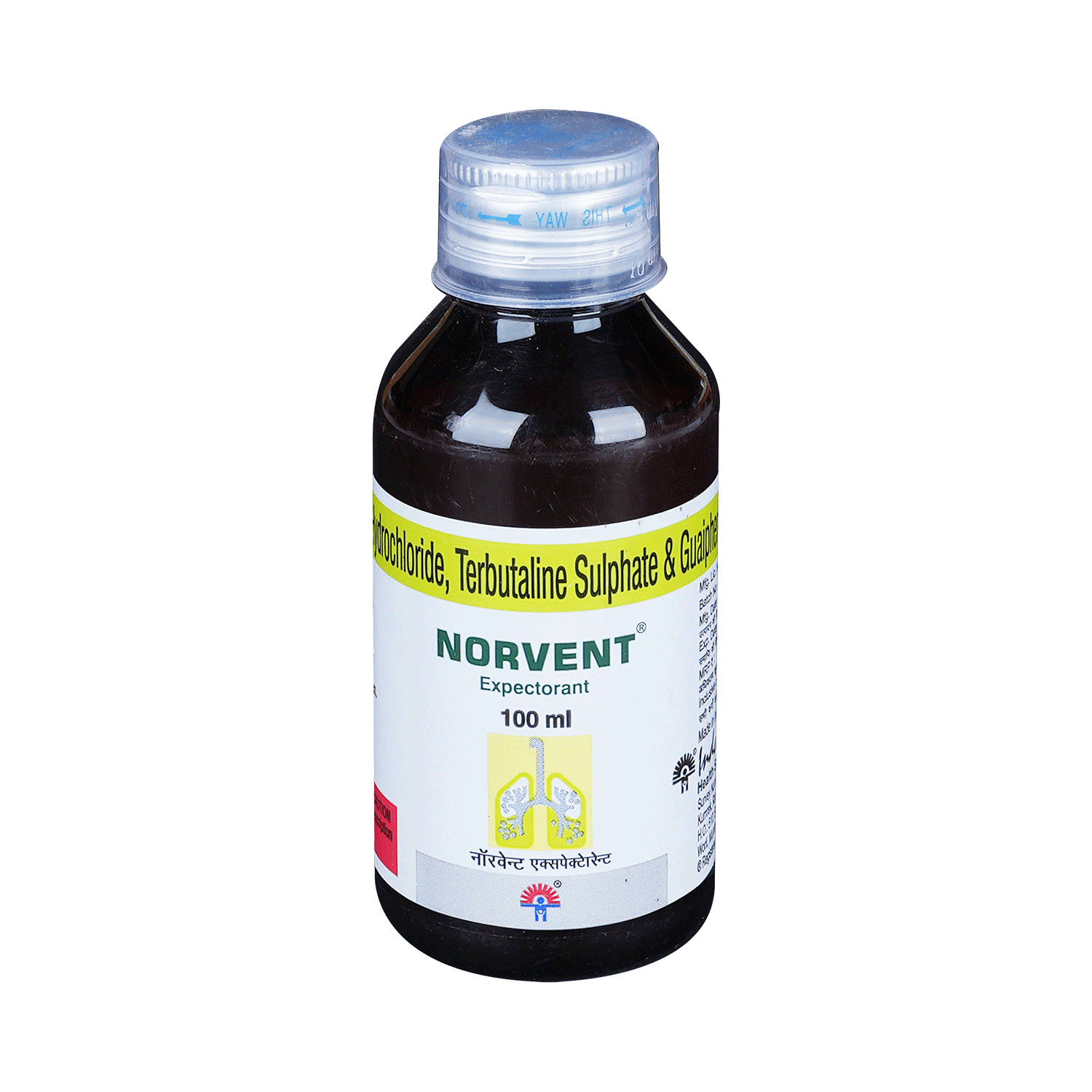
Norvent Expectorant

Rukff-A Syrup

Kazicof TL Syrup
Frequently asked questions
My child has a cough with no mucus. Can I give Brozy Syrup?
Brozy Syrup is specifically intended for treating wet coughs, which involve phlegm production. It works by expelling the mucus from the airways to relieve throat irritation and congestion. For dry coughs, cough suppressants are more suitable. Please consult your child's doctor before administering any medicine to them.
What if my child takes too much Brozy Syrup?
An overdose of Brozy Syrup may lead to serious side effects like seizures, fast heart rate, and excessive salivation. It is crucial to administer this medication according to the prescribed dosage, time, and method. Never abruptly stop taking the medicine, even if your child starts feeling better, as sudden withdrawal can worsen their condition.
My child has a severe cough. Can I give him two cough medicines together?
Do not administer multiple cough or cold medications to your child at once unless directed by their doctor. Always consult their doctor for guidance regarding medication use in children. Confusion may arise, so seeking professional medical advice is crucial before administering any medication.
Can I give my cough medicine to my child?
Never administer medicines intended for adults to your child. Children require specifically formulated medications tailored to their age and needs. Ensure you thoroughly review the label before giving the medication to your child, following the prescribed dosage precisely.
How should Brozy Syrup be stored?
Store Brozy Syrup at room temperature in a dry place, away from direct sunlight or heat sources. Keep all medicines out of reach and sight of children to prevent accidental ingestion.


